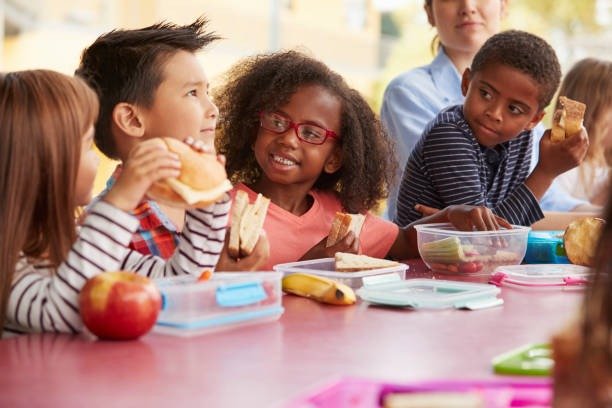How to Handle Disrespectful Behavior

Source: https://www.parents.com/
Disrespectful behavior in children can range from mild actions like eye-rolling or ignoring instructions to more serious behaviors like name-calling and physical aggression. While it may be tempting to dismiss these actions as typical childhood behavior, it’s important to address disrespect early. Kids need to learn respect to build healthy relationships with others. Research from the University of Virginia shows that children who are disrespectful are more likely to grow into rude adults.
Here are 10 ways you can address your child’s disrespectful behavior
Ignore Attention-Seeking Behavior: Ignoring minor disrespect, like eye-rolling, can be an effective strategy for addressing attention-seeking behavior without escalating the situation. Instead of engaging in a power struggle, calmly give a warning about the consequences if the task isn’t completed. If eye-rolling is a frequent issue, address it later when both of you are calm. In the conversation, ask if they realize the behavior, discuss potential consequences, and explore how others feel when faced with rudeness. Reinforce the natural consequences, such as difficulty making friends, to help them understand the impact of disrespect.
Find the Root Cause: If ignoring disrespectful behavior isn’t effective, it may be a sign that your child is communicating a deeper need. Their behavior could indicate they need help managing emotions like anger or frustration, or they may simply be seeking more of your time and attention. While maintaining boundaries is important, addressing their emotional needs such as spending quality time together can improve the situation. For example, dedicating a few minutes each day to reconnecting can help address the root cause of the behavior.
Use When/Then Statements: Instead of focusing on what your child can’t do, use “when/then” statements to encourage positive behavior by showing how they can earn privileges. For example, say, “When you wait your turn, then I can answer you.” This approach helps frame requests constructively. It teaches kids that polite behavior leads to positive outcomes, while giving them a chance to change their actions. Be prepared to follow through with consequences, and avoid repeating warnings, as doing so may teach them not to listen.
Have Your Child Try Again: When your child makes a wrong choice, give them the opportunity to try again with the right choice. For example, if your 10-year-old demands something rudely, instead of lecturing, simply say, “Could you try that again?” This helps them practice using more respectful language and think about how to improve their tone. For younger children, a gentle reminder like, “I can only hear your kind voice,” can encourage them to speak politely.
Pick Your Battles: If your child has multiple behavior issues, it can be overwhelming to constantly discipline them. Instead, focus on the most important behaviors to address, like stopping physical aggression, while temporarily letting less urgent issues, like manners, slide. For example, prioritize teaching your toddler not to bite or hit, and address other behaviors, like saying hello, once the more critical issues are under control.
Provide an Immediate Consequence: Disrespectful behaviors should result in immediate consequences, tailored to your child’s age and the severity of the offense. For young children, a calm-down corner can be effective, while for teens, setting clear boundaries like “I won’t allow hurtful language” helps maintain respect. The focus should be on teaching the child skills to correct their behavior, rather than just punishing them. The goal is to stay connected, guide them in managing emotions, and maintain a positive parent-child relationship.
Use Restitution: If your child or teen behaves disrespectfully, restitution can help discourage future misbehavior. This involves having them make amends, like doing something kind for the person they harmed or repairing the damage they caused. For example, if a child hits a sibling, they can do their sibling’s chores, or if a teen breaks something, they can fix it or pay for repairs. Teaching your child that saying “I’m sorry” isn’t always enough helps them take responsibility for their actions and work to repair relationships.
Refill Someone Else’s Tank: When your kids are disrespectful, it can drain your energy and affect your mood. One effective consequence is having them do something to restore the energy they’ve taken, even if it’s not directly related to their behavior. For example, they could do some of your chores while you relax or prepare one of your favorite meals to lift your spirits.
Use Reminders: Since kids are still learning, a calm but firm reminder about respectful behavior can be the best response to disrespect. It’s most effective to give reminders in advance, such as before a trip, by discussing what respectful behavior looks like, like using inside voices and not kicking the seat in front of them.
Give Them a Hug: Everyone has bad moments, and harsh consequences for disrespect can sometimes make things worse. Discipline should be about teaching, so responding with affection, like a hug, can model loving behavior. This doesn’t mean ignoring boundaries, but after showing kindness, you can have a conversation about why respect is important. Many kids will be more receptive to listening when they feel loved unconditionally.
In conclusion, When addressing disrespectful behavior, it’s normal for your child to make progress gradually, sometimes taking steps forward and then backward. While they may show kindness one day and struggle the next, consistent discipline will help them improve over time. Acknowledge good behavior when you see it, and on difficult days, view disrespect as a sign they need more practice.
Read More: https://childreninfobank.com/safebank/how-to-handle-disrespectful-behavior/
Image Source: https://www.parents.com/





